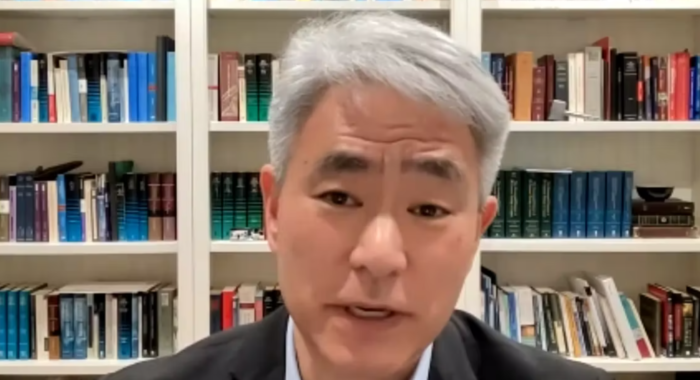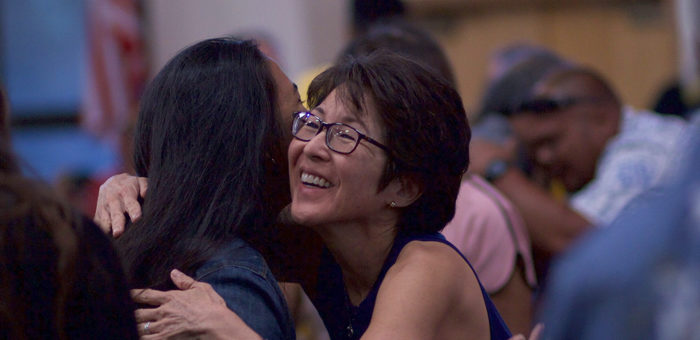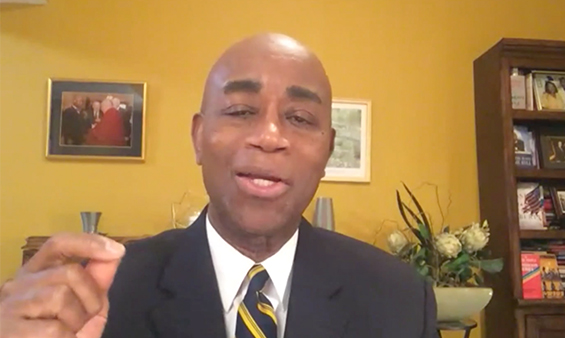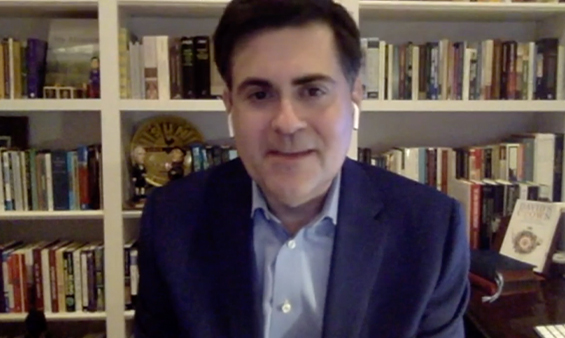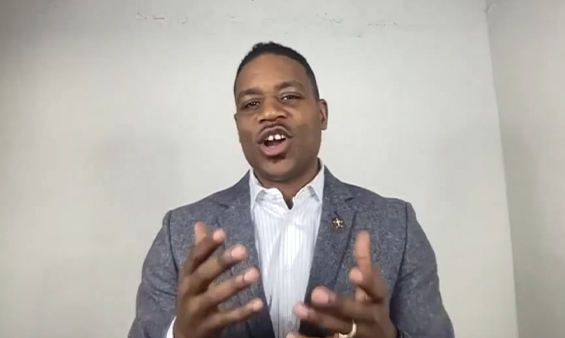
Sixty-eight percent of evangelical leaders say that in conversations with friends and family, they typically share their political position as a matter of information, but do not seek to persuade. Twenty-one percent say they typically do not share their political positions, and 11 percent say they seek to persuade others to their political positions, according to the October Evangelical Leaders Survey.
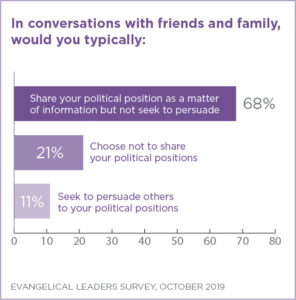
Many of the evangelical leaders surveyed noted that with the current political climate, it is more effective to seek to inform rather than persuade, and that they generally speak on biblically based convictions that inform politics instead of particular political positions.
Scott Ridout, president of Converge, said, “I share my position if asked, not from a party perspective, but from a Scriptural viewpoint. Politics has become too divisive. Posturing from a political perspective fractures, but presenting from a biblical truth strengthens.”
Tami Heim, president and CEO of Christian Leadership Alliance, continued, “My experience is that when you enter into a political conversation to persuade a person who is clearly on the other side, it actually widens the divide. I seldom have seen that kind of conversation come to a productive end, unless someone is sincerely seeking to find their own stand. Even in that situation, stating your point of view with grace and a focus on what you stand for — not what is wrong with the other side — is always more effective.”
Other leaders explained that their response depends on the issue and on which family members or friends are involved in the conversation.
“If I’m informed on the matter then I would likely share my position with some persuasion. My persuasive tone is amplified when I understand biblical support for or against an issue,” said Todd Fetters, bishop of United Brethren in Christ.
Steve Moore, president of nexleader, said, “Some family and friends are lock step with me on their point of view. Some are civil and open. Some are totally opposite and not very open. In the latter group I share why I believe what I do but not with a pressure to change their mind.”
The Evangelical Leaders Survey is a monthly poll of the Board of Directors of the National Association of Evangelicals. They include the CEOs of denominations and representatives of a broad array of evangelical organizations including missions, universities, publishers and churches.



 View All Surveys
View All Surveys 



